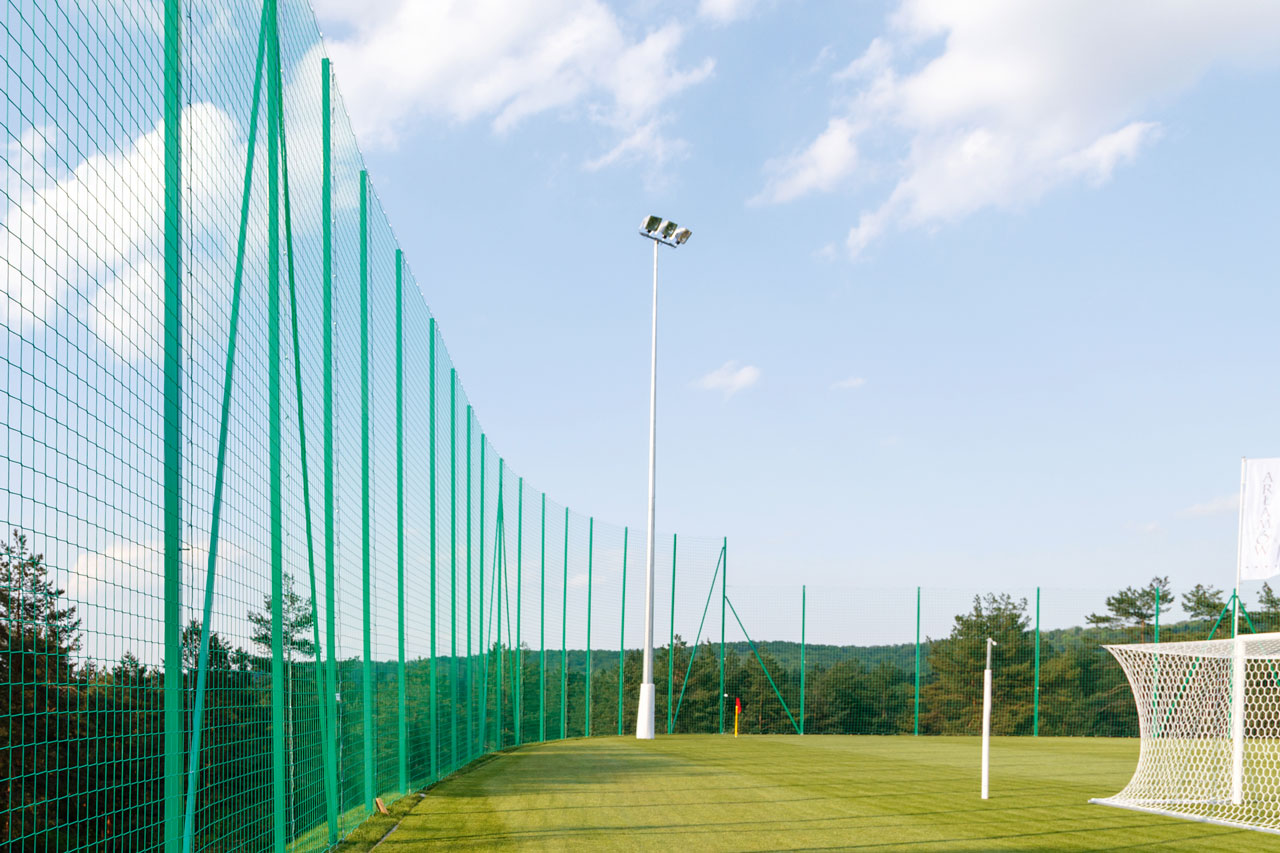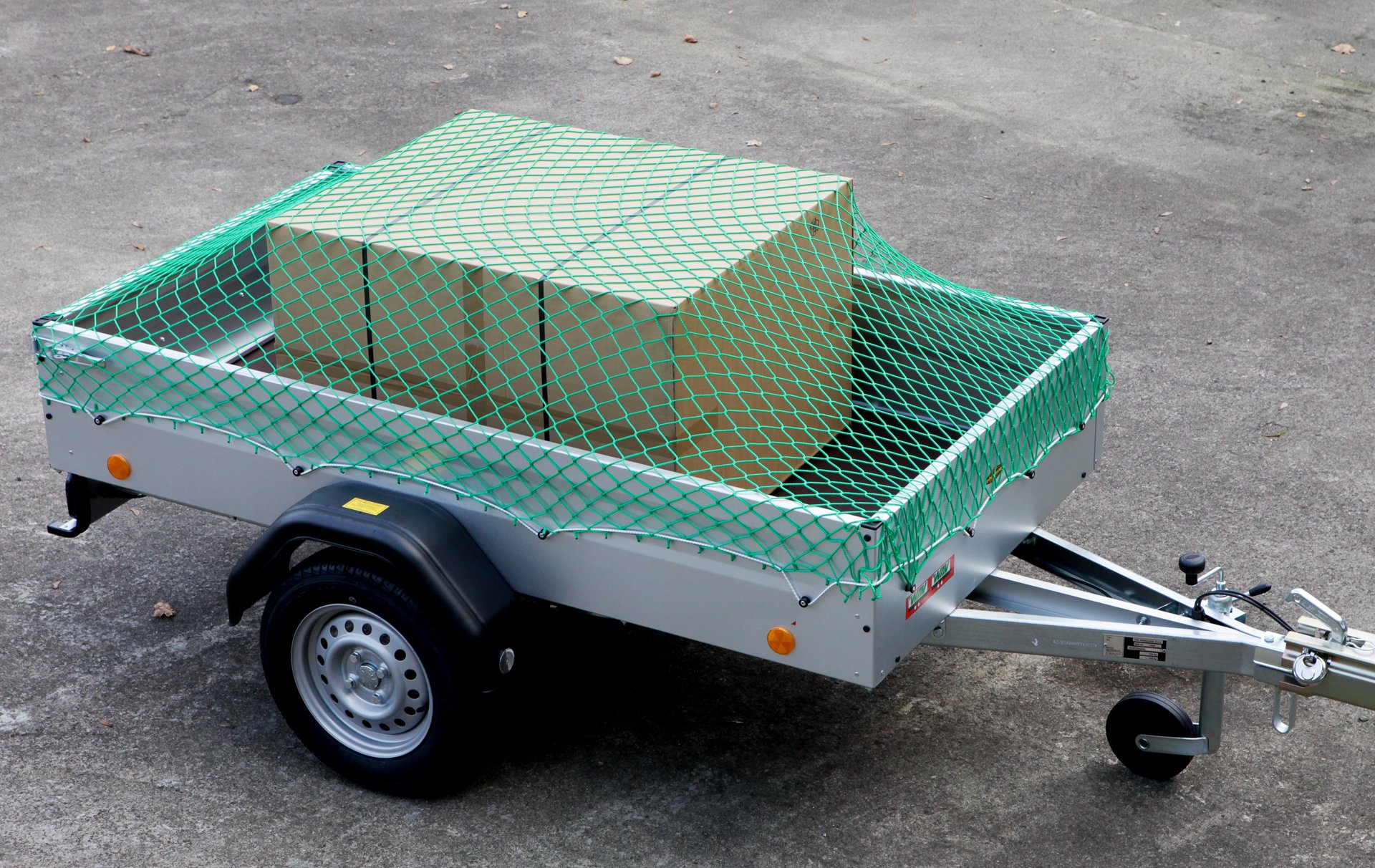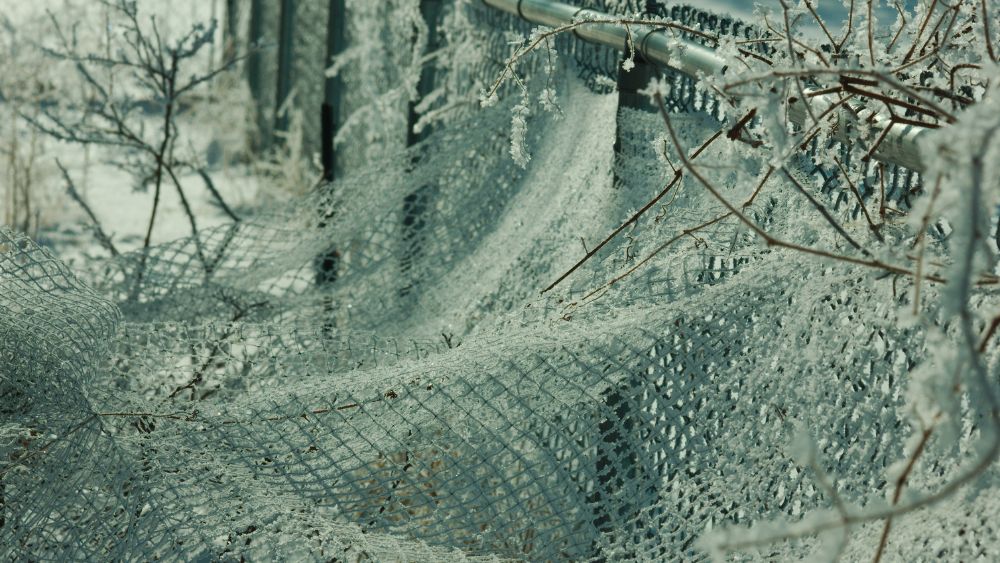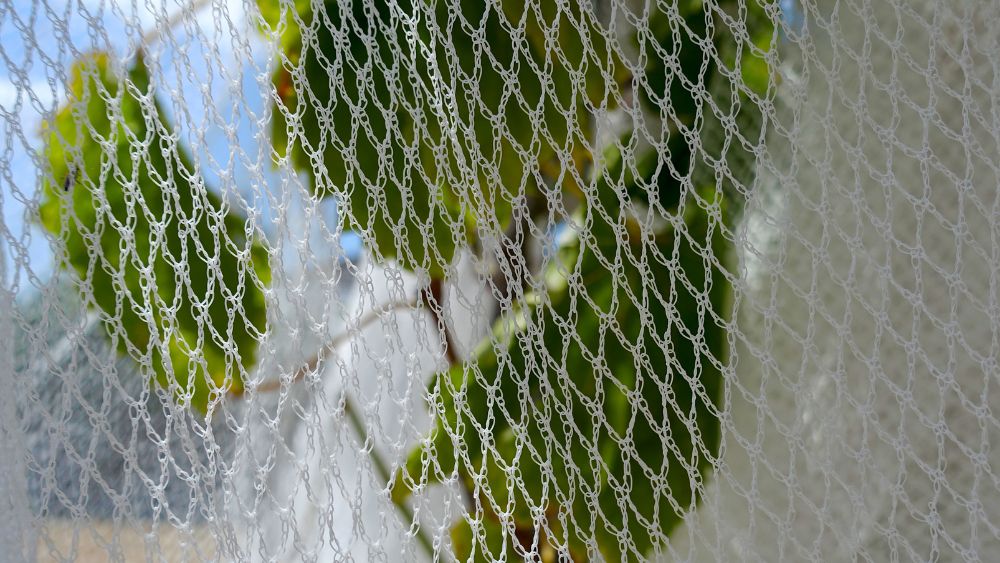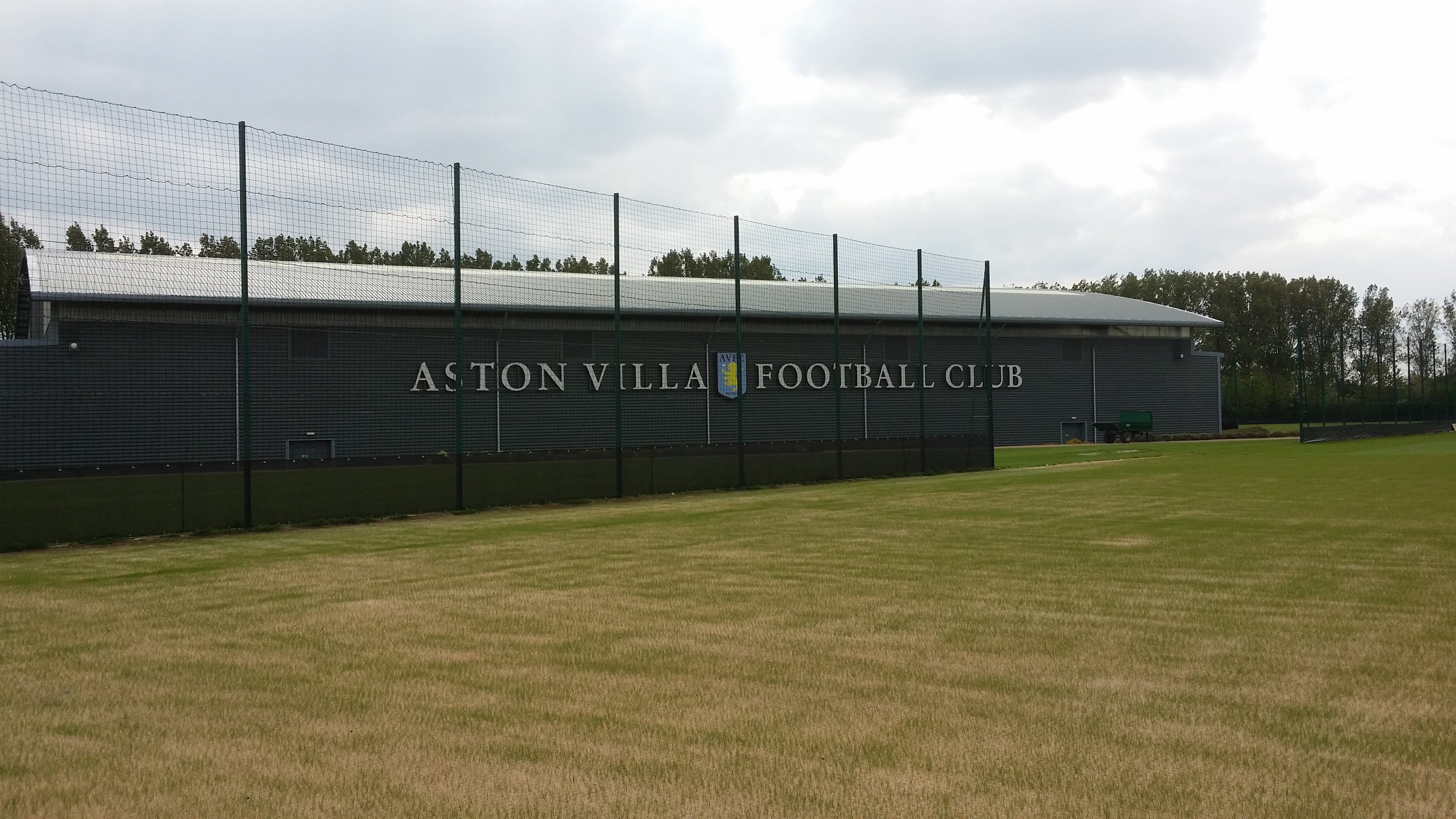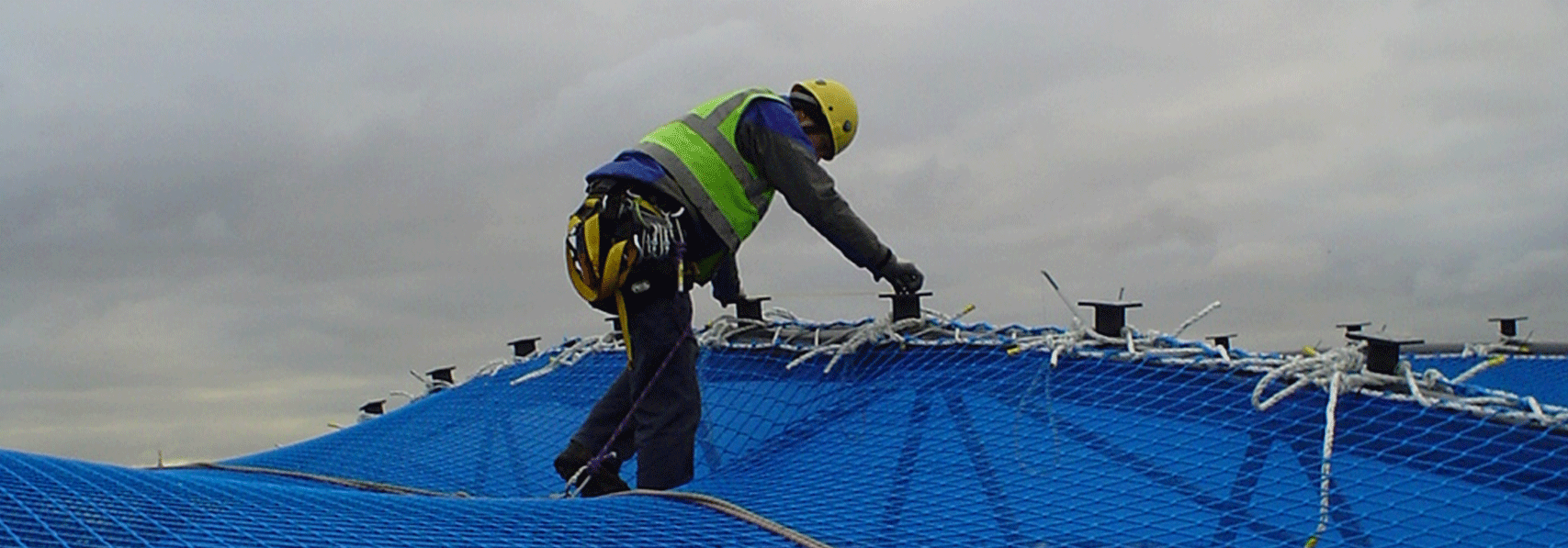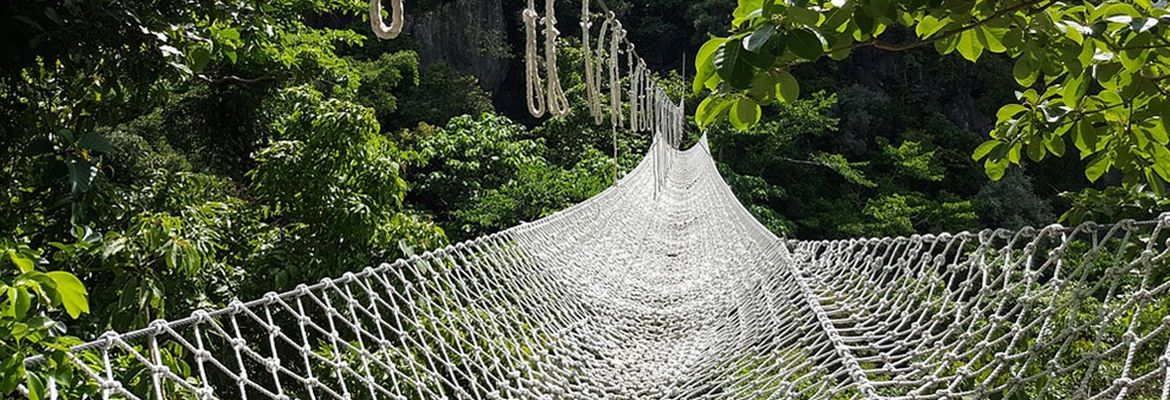
Choosing the Right Netting for Your Project With Huck Nets
At Huck Nets, we supply a wide range of mesh sizes, material diameters, and materials for our netting to cater to every project and industry.
Choosing the right netting for your project is important to ensure it does the job you want and need it to do. So, we’ve put together this guide to help you choose the perfect netting for your specific project.
Two key factors to consider are material diameter and mesh size.
- Mesh size refers to the size of the holes in the netting
- Material diameter relates to the thickness of the strands used
These two factors can greatly impact the strength and durability of your netting and should be the basis of choosing appropriate netting for your project.
Choosing a Twine Diameter From the Huck Nets Range
The diameter affects strength; for instance, a 1mm net has a breaking strain of about 20kg, while a 5mm net is much stronger at around 320kg.
Remember, the smaller the mesh, the stronger the net, as the load is distributed over more material.
| 1mm twine thickness | Normally used for lightweight projects with no heavy impact. |
| The most common use is bird control netting as it’s low cost to cover large areas, lightweight and has a good range of mesh sizes. | |
| 2.3mm twine thickness | Mid-weight netting. |
| Very popular with ball stop uses as it is lightweight and strong (approx 80kg per mesh burst strength). | |
| It’s best hung loosely to allow the net to billow on impact. | |
| 3mm twine thickness | Our most common netting thickness. |
| It’s strong (approx 125kg per mesh burst strength) and available in a wide range of colours. | |
| Due to its durability and adaptability, it’s used extensively in industrial, sports, and home applications. | |
| 4mm twine thickness | This is not a net we use often, but it’s very popular as football goal nets as it shows the colour of the netting very well, even in larger meshes to suit team colours. |
| 5mm twine thickness | Heavyweight netting, used as personnel safety netting, hammer throw cages, and other high-impact areas. |
| Very strong (approx 320kg per mesh burst strength) yet soft to the touch, making it appealing for areas with high contact. | |
| Used as a working platform on building sites so it can be walked on. |
The thickness of netting twine plays a big role in determining its use for different projects. Choosing the right thickness is important to ensure that the netting can handle the specific impacts and loads it will face.
For example, using lightweight netting in high-impact areas could lead to failures and safety risks. Following the proper safety net guidelines not only improves functionality but also ensures compliance with health and safety standards, protecting users and the environment.
Therefore, it's essential to carefully assess your project's needs to select the right netting for the best safety and performance results.
The Netting Mesh Sizes We Offer
Mesh size also determines what the net can stop. A 100mm mesh won't stop cricket balls, while a 20mm mesh is excessive for footballs. We offer a variety of mesh sizes to meet almost any need.
| 8-10 mm mesh | Used as no climb netting or debris netting due to its small mesh size, keeping most things out. |
| 15-20mm mesh | Used in high-impact areas and golf courses as heavy-duty stop netting, in lightweight twines used to keep sparrows and other small birds out/in. |
| 25-30mm mesh | Used as lightweight golf netting and sparrow netting. Can also be used as leaf catch netting. |
| 35-50mm mesh | Used for a lot of sports such as ball stop netting, handrail netting, rack netting, pigeon netting and safety net. |
| 60-120mm mesh | Used as a ball stop for larger balls, safety nets and large bird netting. |
The mesh size of netting is key to its use and effectiveness. Smaller mesh sizes offer better security by stopping smaller objects from getting through, making them great for bird control or collecting debris.
On the other hand, larger mesh sizes allow more airflow and visibility, which is useful for ball stop nets designed to contain larger projectiles.
Choosing the right mesh size is important to ensure the netting meets the specific needs of the project, balancing protection and functionality based on the objects and impacts it needs to handle.
What Types of Netting Do We Offer?
At Huck Nets, we offer a wide range of netting for all industries. Our years of experience have allowed us to develop and provide the highest quality netting for various uses.
We offer different types of netting, such as:
Durable Garden Netting
Garden netting is a versatile protective covering designed for horticultural and landscaping applications. It helps safeguard plants from pests, birds, and other animals that may cause damage.
Our Ultra-Fine Mesh Insect Netting effectively protects against pests that can damage the appearance of your plants. It also makes effective butterfly netting.
This heavy-duty garden netting can be used to create physical barriers around gardens, ensuring crops such as fruits and vegetables remain intact. In landscaping, it aids in preventing soil erosion and can support plant growth by controlling sunlight exposure.
Shop Our Decking Netting for Garden Projects
Protective Bird Netting
Bird netting is a protective solution designed to keep birds away from certain areas, which is especially useful for businesses and industries that grow crops and plants.
Bird netting helps reduce damage and contamination by preventing birds from accessing fruit trees, vegetable gardens, and warehouses. It also protects harvests and ensures cleanliness in storage spaces.
Our Anti-Pigeon Netting is especially popular for protecting buildings from pests and nesting birds, while our Pond Netting also protects water features and fish from predators.
This effective barrier not only promotes healthier plants but also minimises financial losses, making bird netting a smart investment for those looking to protect their assets and improve productivity.
Explore Our Full Range of Bird Netting to Safeguard Your Property & Business
High-Impact Sports Netting
At Huck Nets, we offer a wide range of sports netting solutions for various sports and recreational activities.
Our inventory includes ball stop netting to keep balls within play areas, pitch dividers to separate different sections of fields, and court surrounds for added safety during games.
We also provide professional-grade football netting designed for durability and reliable performance in high-impact situations.
Whether for amateur use, schools, or professional venues, our sports netting meets the needs of any sporting event while ensuring safety and functionality. Our nets have even been used at the 2016 and 2024 Euros and the 2006 and 1966 World Cups.
Find Quality Sports Netting for Clubs & Leisure Centres of All Levels
Health & Safety Compliant Safety Netting
We stock a comprehensive selection of safety netting that adheres to stringent safety standards to ensure optimal protection in various applications.
This heavy-duty plastic netting range is ideal for keeping your site safe and secure and helping your project run smoothly to completion.
Our range includes Dralo netting, designed for industrial use and frequently employed in construction sites for personnel safety, as well as fall arrest safety netting and scaffold netting.
Additionally, we offer debris containment netting, which effectively prevents materials from falling and causing injury or damage and is effective against unstable RAAC concrete.
By providing high-quality safety netting solutions, we help safeguard workers and the surrounding environment. Trust Huck Nets to supply the reliable safety netting you need to maintain compliance with safety netting regulations and ensure security on your projects.
Ensure the Safety Compliance of Your Site with our Range of Industrial Netting
Flame Retardancy Treatment
We can also treat our netting for flame retardancy, which stops the netting from spreading any flame, although it does not stop it from melting. We have a few options of flame-free netting that is extruded with the treatment so it can be used outdoors without washing out. We can slosh dip any of our nets to be flame-retardant for indoor usage.
Complete Your Project With Huck Nets Professional Netting
With a wide range of metal, fabric, and plastic mesh netting suitable for a range of industries, we've got what you need to safely complete your projects, big or small.
If you have any doubts about what you need, our team can answer your questions and help you find the type of netting you need for your project. Just let us know what you are using the net for, and we can help with the required specifications. We can also give pointers on how to install most types of netting if necessary.
Contact our team today to find out more about how our premier netting can help you complete your project to a high standard and within budget.
If you would like to see a sample of any of our products, we can send them to you free of charge via post.
FAQs
Yes, our garden mesh netting effectively prevents garden birds. Designed with appropriate fine mesh sizes, it creates a physical barrier that keeps unwanted birds away from fruits and vegetables to protect plants, ensuring the health and productivity of your garden. Our anti-bird netting is specifically designed for bird protection and may not effectively keep out rodents. For rodent control, additional measures may be necessary alongside bird netting to ensure comprehensive protection for your garden or property. Yes, most of our netting is available in custom sizes to meet the needs of your project. Check individual product pages for more information on the sizes available. Alternatively, contact our team to discuss your project's needs.Does Your Netting Work as Garden Bird Prevention?
Does Your Anti-Bird Netting Keep Out Rodents?
Do You Offer Custom Netting Sizes?

